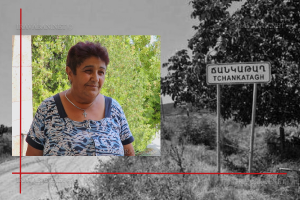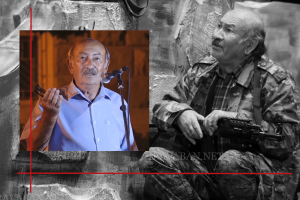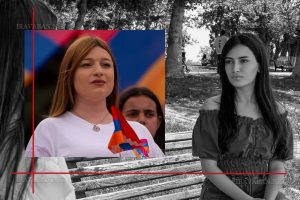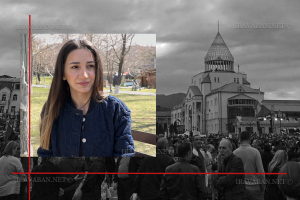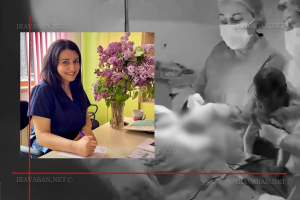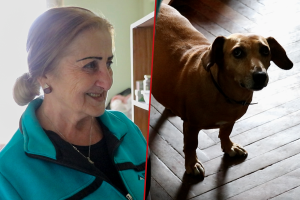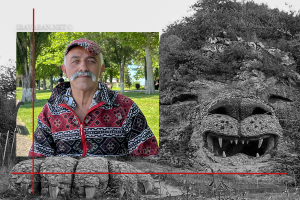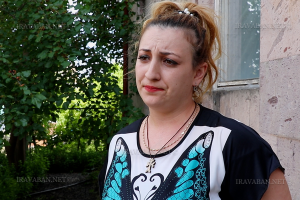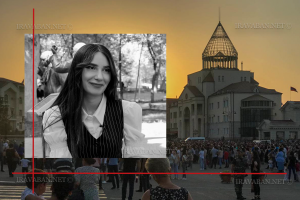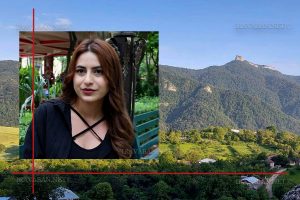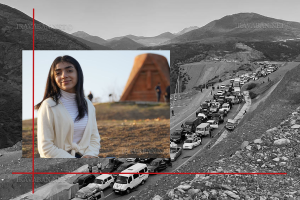Yervand Avanesyan, forcibly displaced from the occupied Republic of Artsakh, told in the framework of “Artsakh: Armenian Genocide 2023. Stories of Survivors” documentary project that after the 44-day war unleashed by Azerbaijan in 2020, all the residents of Tsnakal village, from old to young, remained in the village as they thought that they would not hand over anything.
“Our valley is called Khachen valley. No enemy could approach from that side, this time it didn’t work. But, this time we did not lose, but surrendered,” he said.
According to him, all four sons of his family served, and they kept the rear, noting that if they had ran away from there, the sons would have also run away, that’s why they stayed in the rear.
“The cattle, the plot of land, we’ve been dealing with it, and it spread that Azerbaijan is attacking. The shelling, air attack on the entire village began. Eight civilians were killed. Then it was spread that we have to relocate, there is no other option. We didn’t take anything either: my son, my daughter-in-law, and my younger son were serving as well. He came to take us to Stepanakert. Well, we thought we would go back again. We didn’t take anything, we came to Stepanakert empty-handed, we stayed there for three days before we had to return, and the news came that they were moving from Stepanakert as well. From there, we came here by force, leaving our homes, leaving everything there, empty-handed, living in someone else’s house on rent,” Yervand Avanesyan said.
He said that they could not protect the area, there was no help from anywhere, and they did not allow to send help from Armenia, Azerbaijan was not alone either, Turkey was standing next to it.
“The Russians also came to help us, on the contrary, they were on their side, not on our side, and he didn’t make a sound. If the Russians wanted to, they would not let us be displaced. Now the people have no house or place in this cold weather, the rents are very high, it is difficult to pay the rent, and you have to take care of your child. I do not receive the 50,000 drams, nor do I receive a pension. There is no water in the house, no washing machine, no toilet. The important thing is the washing machine, so that we can keep this child’s clothes clean, they go to school,” our interlocutor said.
Yervand Avanesyan stated that it is not possible to return to Artsakh and live under the conditions proposed by the Azerbaijani side.
“We will go just then when Karabakh gets a separate status and becomes a republic. I will go first because it is my birthplace, I left my grandson, my son, my wife there,” he says.
“Artsakh: Armenian Genocide 2023. Stories of Survivors” documentary project of Iravaban.net is aimed at collecting the memories and testimonies of citizens forcibly displaced from Artsakh occupied by Azerbaijan, about the genocide of the Armenians of Artsakh committed by Azerbaijan, atrocities, the days of war, the path of deportation, etc.
Iravaban.net seeks help from citizens who will voluntarily agree to translate materials into different languages: Russian, English, French, Arabic, Persian, Turkish, Georgian, Chinese…
You can write to our e-mail address at: [email protected]
To donate for realization of the project: https://iravaban.net/en/become-a-supporter
Armenian Lawyers’ Association is the author of the idea “Artsakh: Armenian Genocide 2023. Stories of Survivors” documentary project of Iravaban.net and is the owner of copyright of the materials created within the framework of the project. In case of using the materials produced within the framework of the project, it is necessary to obtain the written permission of the Armenian Lawyers’ Association.
Details in the video.
Hasmik Sargsyan

